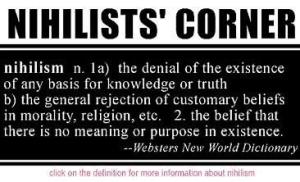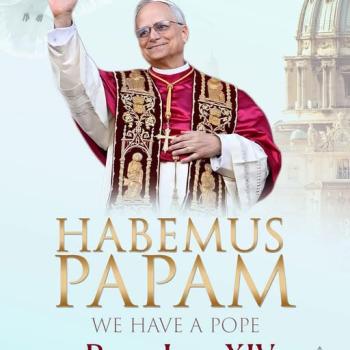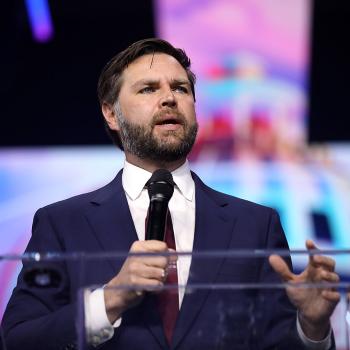Is That All There Is? Disaffiliation From Religion Increases
Perhaps one of the least liked of Jesus’s parables is that of the wealthy man who reaps a great harvest, puts up extra barns, believes he should eat, drink and be merry, and finds himself dead that night. What a downer. I’m reminded of Peggy Lee’s fabulous song “Is That All There Is?” thinking that those would be the last words of the wealthy man.
Except…an awful lot of people think that is enough. They are satisfied with whatever the world can give; if they die, they die. Such is the nihilism afflicting the ‘nones’, the disaffiliated from religion folks. Statistics tell of a catastrophic decline in religious faith among those in their 40s, 50s, and 60s, but particularly among those who are younger. Each generation is less religious, and that fact is radically changing society. Most observers throw up their hands in confusion and despair, unsure why this is happening. However, the fact is we know why it is occurring. It’s complicated, but we can understand.
Why?
Just a few factors in this decline include lack of religious practice in childhood, disaffiliation in high school and decline of the two-parent family, pluralism in religious belief, a politically conservative identification with religion., the absence of religious experience, and the inability of religion to answer big questions. There are other reasons, but these are the most important.
Lack of Religious Practice in Childhood
- Lack of Religious Practice in Childhood. Research continues to say that this is the biggest reason. Religious experience in the home leads to religious practice in adulthood. The most simple things–grace before meals, prayers at bedtime, going to church–anchor the child and stay with them until adulthood.
One Parent Family and Disaffiliation at Young Age
- Disaffiliation in High School and Lack of a Two-parent Family. It’s just a fact. Single parents have a more difficult time keeping kids religious. Also, despite a public perception that the young lose their faith in college when confronted with the rational approach of the university, the young are disaffiliated at a much earlier age, happening at age eighteen or before.
Acceptance of Pluralism
- Acceptance of Pluralism. There is nothing wrong with living in a pluralistic society, except for the rise of a misunderstanding of tolerance which says that all truth is the same, all religions have an equal amount of truth, and it doesn’t matter what you believe. Pluralism raises a challenge for belief, but it’s a good challenge. One must make a conscious choice about why they believe what they believe. But the young often fail to differentiate between belief systems. They come into contact with atheists, find them good, and decide that religious belief is non-essential. They mistake the essential goodness of humans for a concrete path to truth that religious faith offers.
Identification of Political Conservatism With Religion
- Political Conservatism Identified With Religion. The co-opting of religious belief by conservatives has led to a higher disaffiliation rate among liberals with religion. The politicization of religion has led to swaths of groups ditching religious belief. The Church’s teaching on sexuality is often seen as retrograde and not a paradigm for current sexual practice either as a single adult or as a bonded couple.
Lack of an Adult Experience of God
- Lack of An Adult Experience of God. While childhood religious experience is great, it is not enough to hold an adult to religious belief. Most adults are still stuck as a second-grade experience of God because that’s when they learned how to pray as a child. They received no further education in prayer.
Inability of Religion to Answer Major Questions
- Inability of Religion to Answer Major Questions. The problem of suffering, the presence of God, the ability of God to answer prayer, the conflict of science with religion–all these perennial issues have a new focus and the Church and all religious belief is way behind finding answers that satisfy the disaffiliated.
Return to Religious Faith Problematic
Two things mitigate a vibrant return to religious faith. First is the fact that the disaffiliated were never that connected to religious faith to begin with. Their parents and grandparents had begun the gradual disconnection decades before. Second, the growing isolation of individuals is directly connected to the decline in religious faith, which was the major player in community and civic life. Even now, those with the most connection to religious faith are the most involved in civic affairs and community practices.
Possible Solutions
Yet, a few things can be done to change all this:
Increase Family Religious Life
- Increase Family Religious Life. As strange or silly as it may seem, developing a domestic life that values meal and bedtime prayers is absolutely crucial. So is the development of religious practices such as wearing a scapular, saying the rosary, and reading the Bible. Statistics are a brutal thing. Like it or not, these practices cement religious belief in children that help them withstand disaffiliation later.
Two-parent Family
- Strengthen the Family. Insisting on two parents being involved not only results in healthier kids but in more religious children as well.
Prayer and Adult Religious Experience
- Paying Attention To Prayer. Having a child personally appropriate ways of prayer is a great way to increase positive religious experience that strengthens the young’s experience of God. Dogma is important. We have to know what we believe. But it is religious experience that opens up a young mind to a consciousness of a God who cares for them. To my knowledge, this point is not stressed among religious researchers.
Tolerance Should Not Extinguish Path to Truth
- Tolerance Does Not Mean All Truths Are Equal. Pluralism should lead to respect for all humans, but not a bulldozing of the path to Truth.
Conservativism Should Not Be Equated With Religious Faith
- Break the Hold Conservatism Has On Faith. I am a conservative, but I am aware that conservatism is not religious faith. There is room for liberals and conservatives in religious faith, and politicizing faith issues must be avoided if possible.
Find New Ways to Answer Perennial Questions
- Work On Finding New Ways To Answer Age Old Questions. The Church and all religious faith is hurt by faith’s inability to answer major questions in a modern way. Sexual issues pose major questions, and the Church is woefully inadequate in addressing the modern world with its concerns on the matter. In fact, I believe until we successfully develop a new method to enter the sexual questions conversation, we will be unable to effectively answer the other questions on human suffering, the presence of God, and the way religious faith can work with science.
Is That All There Is?–No, There Is Hope
Religious researchers point out that in the recent past, those who left religion were likely to come back as older adults. These researchers now say don’t expect the disaffiliated to return. Not really having left much, they are not motivated to come back to something that never really fed them. I am not that pessimistic. The Church has always been able to talk to the culture, though it almost always is late to the table. It’s time for the Church and those who think religious faith is important to step up. The modest proposals above won’t completely deal with the nihilism gripping our world. But successful implementation of these suggestions might nudge the worldly from an ‘eat, drink, and be merry’ way of approaching life to finding an answer to Peggy Lee’s soulful musical question, “Is That All There Is?”
***For clarity of reading, I deliberately left out footnoting the research as it is easily available on Google from the Pew Research Center, NPR, and other outlets.















